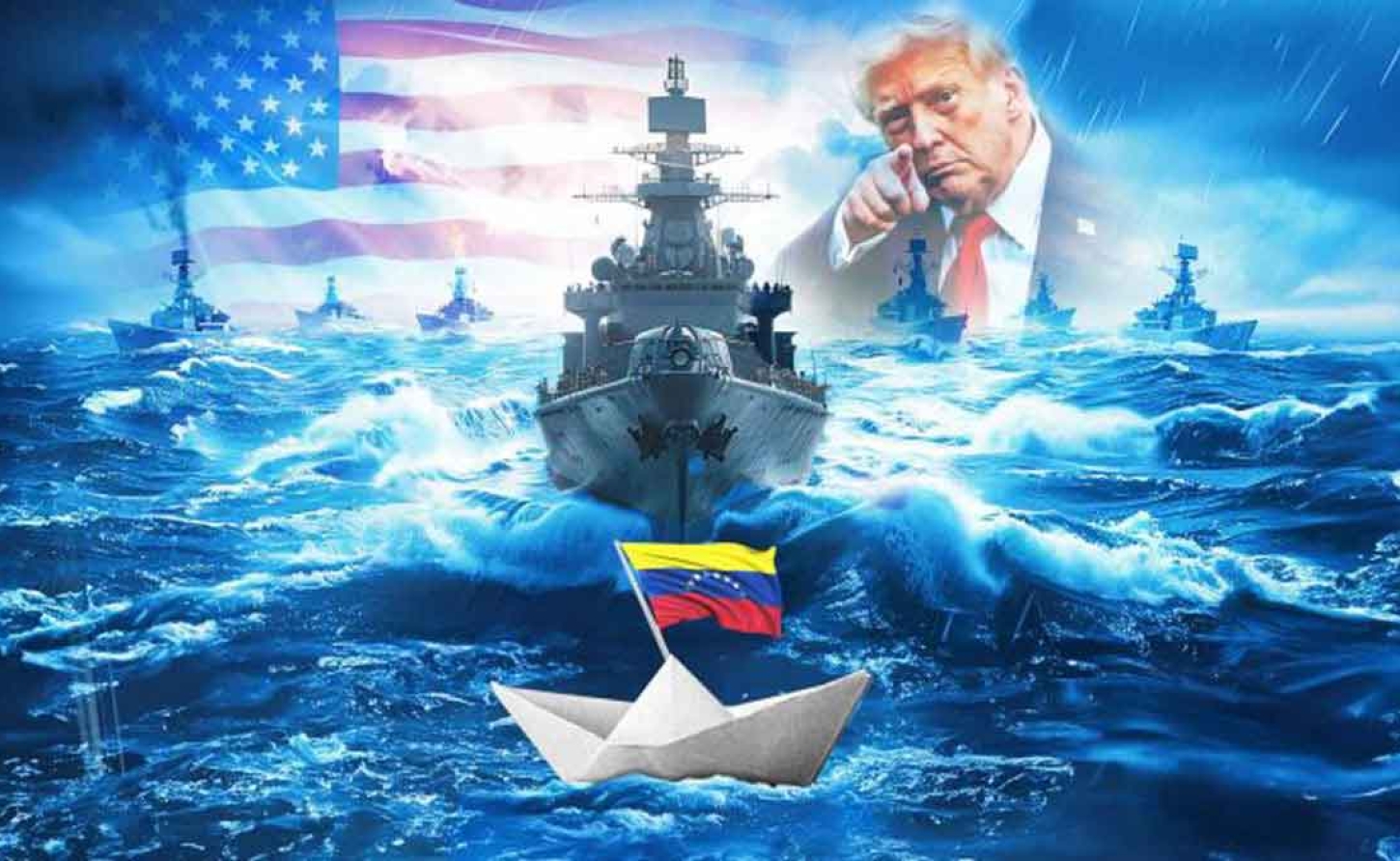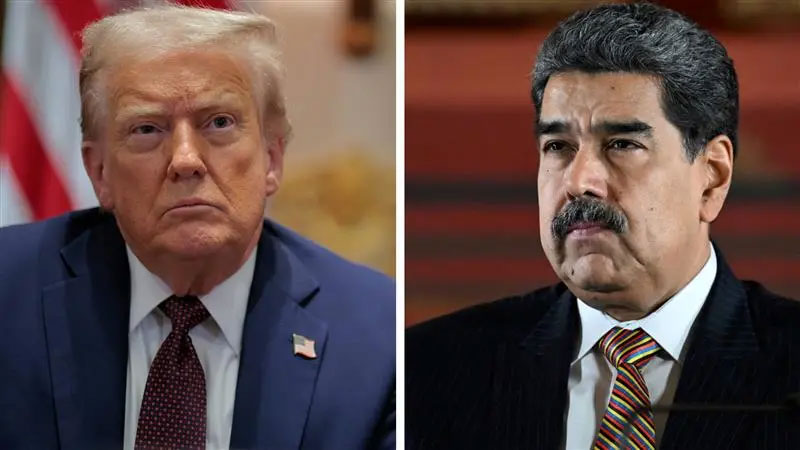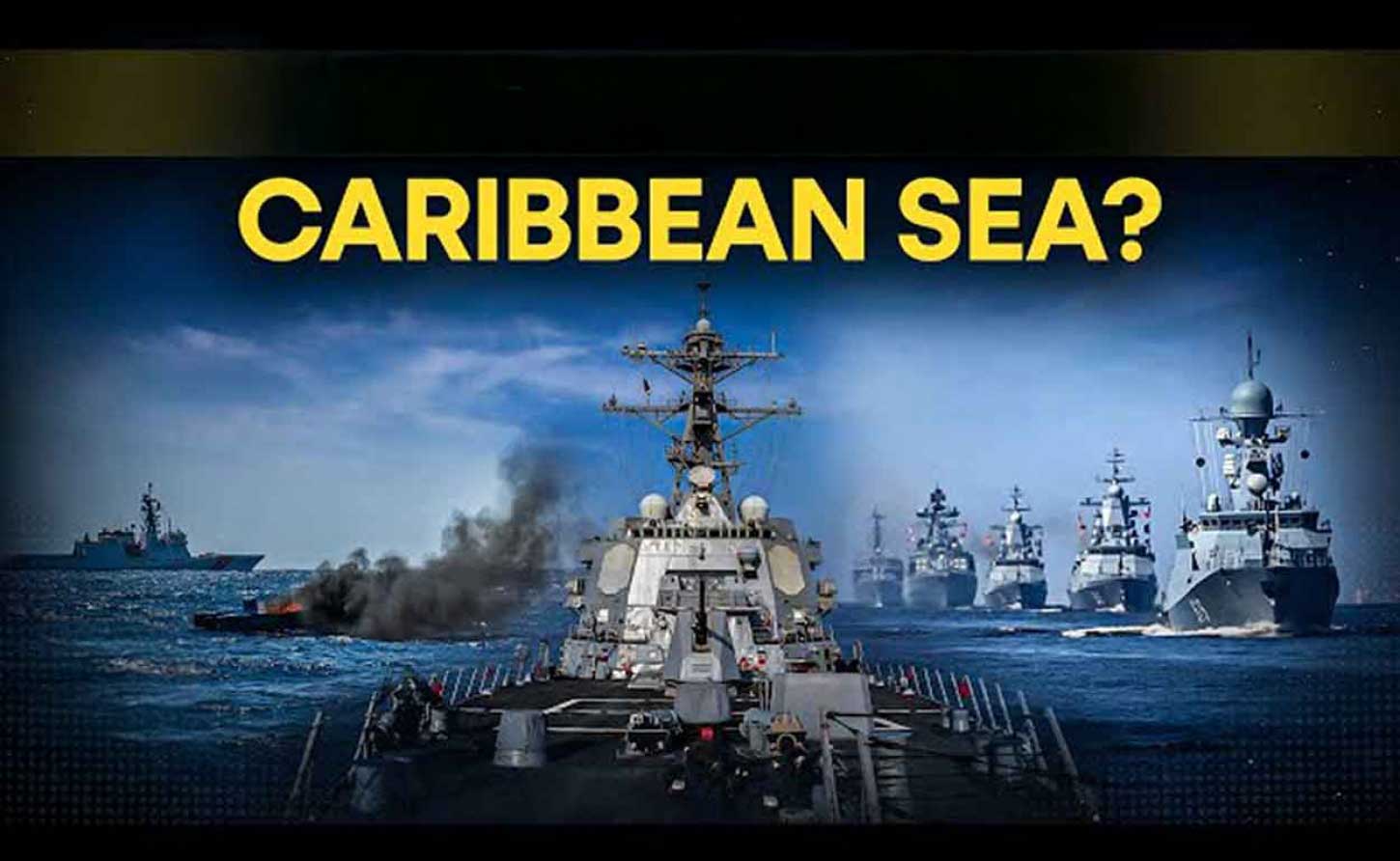CARIBBEAN | Amidst the Carib 'Zone of Peace' Trump Plans to Move from Boat to Land Strikes in Venezuela

MONTEGO BAY, Jamaica, October 15, 2025 - The Caribbean Sea has become America's newest battlefield, and Caribbean nations are discovering they have little say in the matter. As U.S. Southern Command Admiral Alvin Holsey prepares to touch down in Trinidad and Tobago, Grenada, and Antigua this week for what Washington frames as "security cooperation" talks, the reality on the ground—and at sea—tells a starkly different story.
Donald Trump's Regime has transformed these azure waters into a killing field, with at least 27 people dead from missile strikes on vessels off Venezuela's coast, while Caribbean leaders watch their maritime sovereignty evaporate under the guise of America's renewed "war on drugs."
The escalation is breathtaking in its audacity. Trump's Wednesday announcement that the U.S. is now "looking at land" strikes inside Venezuela represents more than mission creep—it's a fundamental reimagining of American military intervention in the Western Hemisphere.
The CIA has received authorization for covert operations against Nicolas Maduro's regime. Ten thousand U.S. troops are positioned across the region. Eight warships and a submarine patrol waters that Caribbean fishermen once considered their own.
Yet perhaps most revealing is what Trump told reporters with characteristic bluntness: "We've got the sea under control." Not American waters. Not international waters. The sea itself—including the maritime territories that 15 CARICOM nations have long considered their sovereign domain.

The administration's classification of this campaign as an "armed conflict" with drug cartels deemed "unlawful combatants" isn't just semantic gymnastics—it's a legal maneuver designed to bypass Congressional oversight and international law.
But here's where the Caribbean's predicament becomes acute: when Grenada received Washington's request to install military equipment on its soil—just 100 miles from Venezuelan shores—the silence from St. George's was deafening.
This island nation, which still bears scars from the 1983 U.S. invasion, now faces an impossible choice. Accept, and become a de facto American military outpost. Refuse, as Antigua and Barbuda courageously did, and risk being labeled uncooperative in the "war on drugs."
Admiral Holsey's diplomatic tour, dressed up as discussions about "transnational organized crime" and "border security," cannot mask the underlying power play. These aren't negotiations—they're notifications. The U.S. Embassy's statement about "shared challenges" rings hollow when Caribbean nations weren't consulted before their seas became a free-fire zone.
Trinidad and Tobago officials report drug traffickers are already adapting, with more unlawful flights from South America dropping bales into their waters, essentially exporting Colombia's drug war into the Eastern Caribbean.
CARICOM's vision of a "Zone of Peace" in the Caribbean—a principle enshrined in regional declarations for decades—now looks like wishful thinking scrawled on paper while gunboats circle outside.
The irony cuts deep: just months ago, CARICOM welcomed Interpol Secretary General Valdecy Urquiza to their Montego Bay summit, discussing "international cooperation" and regional security. Today, that same Caribbean Sea hosts extrajudicial executions that the ACLU's Jeffrey Stein bluntly calls "murder, pure and simple."
The regional bloc faces a credibility crisis. How can CARICOM claim to represent Caribbean interests when the United States unilaterally declares war in their waters without consultation?
When Jamaican officials admit to the New York Times that enforcement is simply pushing traffickers to adopt "more covert means"—essentially acknowledging that Caribbean nations are suffering the violence without seeing the benefits—it exposes the fundamental powerlessness of regional institutions against American military might.
Venezuelan insiders, speaking to El País, believe Maduro will weather this storm as he has others, calculating that "the cost of an armed clash would be too high" for Trump to sustain. But they're missing the point.
The cost is already being paid—by Caribbean fishermen terrified their boats might be the next "drug vessel" vaporized by a Hellfire missile, by Eastern Caribbean nations watching their waters become a war zone, by a region that fought for decades to escape colonial domination only to find itself conscripted into America's latest military adventure.
Trump's evolution from sea strikes to contemplating "land" operations inside Venezuela represents more than tactical escalation—it's a strategic gambit that places Caribbean nations in an impossible position.
Consider the geography: any sustained U.S. military operation against Venezuela would require logistics bases, intelligence facilities, and forward operating positions. The Pentagon isn't visiting Trinidad and Grenada for philosophical discussions about maritime security; they're shopping for real estate.
 The transformation of trafficking routes reveals the operation's fundamental futility. Colombian cartels aren't stopping—they're adapting, using Caribbean islands as stepping stones, hiding shipments in legitimate cargo vessels, and increasingly targeting European and Australian markets where prices soar higher than Manhattan real estate.
The transformation of trafficking routes reveals the operation's fundamental futility. Colombian cartels aren't stopping—they're adapting, using Caribbean islands as stepping stones, hiding shipments in legitimate cargo vessels, and increasingly targeting European and Australian markets where prices soar higher than Manhattan real estate.
The U.S. Coast Guard's seizure of 175,000 kilos of cocaine last year sounds impressive until you realize global production hit record highs anyway. The drugs still flow; only the bodies pile up in Caribbean waters.
But the real casualty may be Caribbean sovereignty itself. When Trinidad and Tobago becomes a staging ground for U.S. military helicopters, when Grenada contemplates hosting American military equipment, when fishermen across the region plead with their governments to negotiate with Washington just to ensure their boats aren't mistaken for targets—the region's hard-won independence erodes with each missile strike.
The bitter precedent of Keith Rowley's Interpol listing—Trinidad's former Prime Minister discovering he's on an international watchlist while transiting through Antigua—suddenly appears less like an isolated incident and more like part of a pattern.
Caribbean leaders who don't play ball with Washington's agenda may find themselves facing more than diplomatic pressure. The message is clear: cooperate with the militarization, or face consequences that extend far beyond your borders.
Admiral Holsey's Caribbean tour this week represents a crossroads moment for the region. Behind closed doors in Port of Spain, St. George's, and St. John's, U.S. military officials will present their requests wrapped in the language of partnership and shared security. But Caribbean leaders must ask themselves: security for whom?
When Trump declares "we've got the sea under control," he's not offering protection—he's announcing occupation. When the CIA receives authorization for covert operations in Venezuela, the fallout won't respect maritime boundaries.
When drug traffickers adapt by flooding Caribbean territories with aerial drops and new routes, it's island nations that will face the consequences of a war they didn't declare and cannot win.
The Caribbean's curse has always been its geography—too strategically located to be left alone, too small to resist when superpowers come calling. But accepting militarization as inevitable surrenders the very sovereignty these nations fought to achieve.
CARICOM's dream of a peaceful Caribbean Sea may seem naive against American gunboats, but the alternative—accepting their waters as America's battlefield—guarantees the region will pay the price for Washington's wars for generations to come.
-30-
